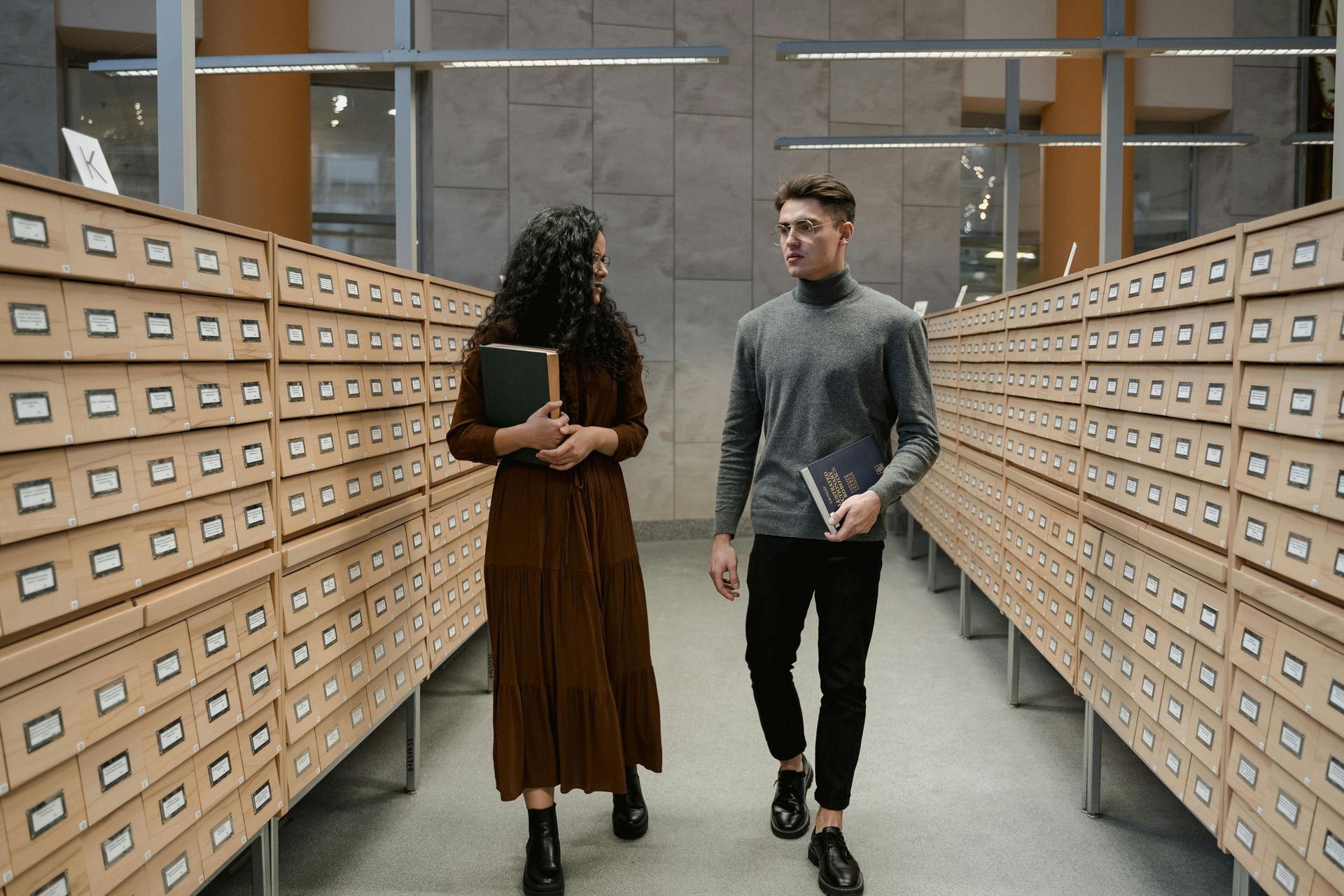Join us in preserving the rich history of Sevier County! Share your documents, photographs, and personal stories to help us build a vibrant archive that reflects our community's unique identity.
Preserving Our Heritage Together
The Power of Community Contributions
Donation Guidelines
Review our guidelines below to see how you can make a lasting impact.
Contribute Your Treasures
- Preserve history for generations
- We follow archive industry-recognized practices to ensure the long-term physical and digital preservation of historical materials.
- Collections are cataloged for easy public discovery and historical accuracy.
- Every donation is documented with clear legal terms for ownership, use, and donor intent.

What We Seek
We are looking for a variety of materials that reflect the diverse experiences of Sevier County residents.
Key types of items we collect include:
- Manuscripts
- Books and Pamphlets
- Photographs
- Maps and Plans
- Government records
- Organizational records
- Personal papers
- Newspapers and Periodicals
- (only relevant to Sevier County)
- Audio and Video materials
- Digital Records
- Ephemera
- Photos of Artifacts
- Certain types of art
- Genealogy, scrapbooks, clippings
Topics of Interest
- Accolades / Awards
- Activities / Events
- Agriculture
- Artifacts
- Art
- Art, Performing
- Autobiographies
- Aviation
- Biographies
- Business
- Buildings
- Cemeteries
- CCC
- Community History
- Education
- Folklore
- Indigenous People
- Genealogy Government
- Industry
- Infrastructure
- Landmarks
- Medicine / Health
- Military
- Music
- Natural History
- Geography
- Obituaries
- Organizations
- Parks
- People
- Recreation
- Religion
- Roads / Trails
- Sports
- Water Resources

Share Your Story
Your personal stories are invaluable. Whether it's a cherished memory or a significant event, we encourage you to contribute your narrative to help us build a comprehensive archive that honors our shared heritage. Find out more about our Heritage Services Oral History Projects.
We're just getting started!
How to Submit Your Historical Materials and Stories
1
Review Guidelines
Familiarize yourself with our submission guidelines to ensure your materials meet our criteria. This includes acceptable formats, quality standards, and any necessary permissions for sharing.
If you have questions please check out Frequently Asked Questions
or contact us page.
2
Complete Contribution Form
Fill out our online Contribution Form with your contact information and a brief description of your materials. This helps us understand the context and significance of your contributions and your intent with the items.
3
Review & Submit
Materials
A person from the SCAHS team will contact you for further direction and review of your items.
Once determined that your items meet our mission, objectives and donation guidelines we will accept your materials for donation or loan.
4
Preserve & Share
Upon signing a Deed of Gift or Loan Agreement our team will prepare the items for preservation and sharing based on permissions, copyright and donor intent.
Items will be searchable in our database making them easy to find whether at the archive or online.
Contact Us for Contributions
Please fill out the Contribution Form below and a member of our team will get back to you. If you have questions or need assistance regarding contributions to our archive, please reach out to us. We are here to help you share your historical materials and stories.
Contribution Form
Thank you for contacting us.
A member of our team will contact you about your contribution. If you don't hear from us within 3-5 business days, please call and leave a message or schedule an appointment.
Oops, there was an error sending your message.
Please try again later.
Contact us if you continue to have problems.
Professional Archival Standards You Can Trust
At Sevier County Archives & Heritage Services, we follow nationally recognized archival standards to ensure that every donation is preserved with care and integrity.
✅ What We Follow:
- Preservation Standards (ALA/ISO 11799)
Climate-stable storage and professional care for long-term physical and digital preservation. - Descriptive Standards (DACS Describing Archives: A Content Standard)
Collections are cataloged for easy public discovery and historical accuracy. - Provenance & Original Order
We maintain the original context and arrangement of records to protect their meaning. - Controlled Access & Privacy
Secure storage and ethical access policies safeguard sensitive materials. - Digitization Standards (FADGI
&
NDSA)
High-quality, long-lasting digital preservation practices. - SAA Code of Ethics
(Society of American Archivists Code of Ethics)
Our team follows professional ethics to ensure respectful and responsible handling of your donation. - Deed of Gift / Loan Agreements
Every donation is documented with clear legal terms for ownership, use, and donor intent.
Have questions about donating? Contact Us
Frequently Asked Questions
Here, we address common inquiries regarding contributions, submission guidelines, and the archival process to help you navigate your journey in preserving Sevier County's history.
What is an archive?
An Archives (often written with a capital A and usually, but not always, in the plural) is an organization dedicated to preserving the documentary heritage of a particular group: a city, a province or state, a business, a university, or a community.
The word archives (usually written with a lower-case a and sometimes referred to in the singular, as archive) refers to the permanently valuable records—such as letters, reports, accounts, minute books, draft and final manuscripts, and photographs—of people, businesses, and government. These records are kept because they have continuing value to the creating agency and to other potential users. They are the documentary evidence of past events. They are the facts we use to interpret and understand history.
Source: Society of American Archivists
What is an Archivist?
" In the course of everyday life, individuals, organizations, and governments create and keep information about their activities. These records may be personal and unplanned—a photograph, a letter to a friend, notes toward a manuscript—or they may be official and widely shared—financial and legal documents, recordings of public speeches, medical files, and electronic records. These records, and the places in which they are kept, are called archives, and archivists are the professionals who assess, collect, organize, preserve, and provide access to these records.
Assess: Not every record has enduring value, and archivists don’t keep every record that comes their way. Instead, archivists select records, a process that requires an understanding of the historical context in which the records were created, the uses for which they were intended, and their relationships to other sources.
Collect and Organize: Archivists arrange and describe the collection of records, in accordance with national and international standards of practice.
Preserve: Because materials in archival collections are unique, specialized, or rare, archivists strive to protect records from physical damage and theft so that they can be used today and in the future. Increasingly archivists play a key role in ensuring that digital records, which may quickly grow obsolete, will be available when needed in the future.
Provide Access: Archivists identify the essential evidence of our society and ensure its availability for use by students, teachers, researchers, organization leaders, historians, and a wide range of individuals with information needs. Many archivists also plan and direct exhibitions, publications, and other outreach programs to broaden the use of collections, helping people find and understand the information they need."
Source: Society of American Archivists
How can I get help with my submission?
If you have questions or need assistance, please reach out to our team via the contact information provided on our website.
What if I have more questions?
Feel free to explore our website for additional resources or contact us directly for any specific inquiries you may have.
Are there any restrictions on submissions?
Yes, we do not accept materials that are not relevant to Sevier County's history, places or people and if it does not fall within our mission or Collection Scope or that violates copyright laws.
How can I stay updated on archival events?
Subscribe to our newsletter or follow us on social media to receive updates on events, new collections, and community initiatives.Can I volunteer to help with the archive?
Absolutely! We welcome volunteers who are passionate about preserving history. Please check our volunteer section (coming soon) for more details or contact us directly.
What types of materials can I contribute?
We welcome a variety of historical materials, including documents, photographs, maps, and personal stories that reflect the rich heritage of Sevier County.How do I submit my materials?
To submit your materials, please follow our detailed submission guidelines outlined on our website. Ensure your items are well-documented and relevant to our archive.Is there a review process for submissions?
Yes, all submissions undergo a review process to ensure they meet our archival standards and contribute meaningfully to our collection.What happens to my materials after submission?
Once your donation is accepted, we preserve your materials in our physical and/or digital archive following professional archival standards. They will be made available to the public based on your permissions, copyright, and their research value.
If you've loaned items for digitization, we’ll handle them with care, create digital copies, and enter them into our database. Your originals will be returned, and digital copies can be provided upon request. Items may be viewable on our website, depending on your permissions and copyright guidelines.
Can I remain anonymous when submitting?
Yes, you can choose to remain anonymous. However, providing your name and contact information helps us maintain the integrity of our archive.
Additional Donation Guidelines
Donation Types
Permanent Donations:
Items gifted outright to the archive, where SCAHS becomes the legal custodian to preserve and share with future generations.
Loan for Digitization or Copy:
If you wish to retain your originals, we welcome high-quality copies or digital scans for our research collection. We will scan or copy records if permissions and copyright allow, and enough time is given to digitize the items properly. Items will be viewable on our website, or a digital copy of the file may be provided to the donor upon request, as permissions allow.
Access and Preservation
All accepted materials will be preserved using archival best practices. Donated items may be made available for public research, educational exhibits, and outreach programs in print or on the world wide web, our website and social media. Items will be recorded in our database and made available with permission as granted in Deed of Gift or Loan Agreement.
The location, retention, cataloging, preservation, and disposition of the donated materials by the Sevier County Archives and Heritage Services (SCAHS) will be conducted at our discretion, following SCAHS’s archival practices, according to SCAHS's Donation Guidelines and with applicable law.
Researchers, students, and the general public are welcome to explore donated resources, often by appointment, in a designated reading or research room. To preserve the integrity of the collections, materials must be handled with care, and some may have access restrictions due to fragility or privacy concerns. Items will not be allowed to be removed from the Archive location. Archives staff are available to assist with locating materials, explaining finding aids, and guiding visitors through the process. Whether you're conducting in-depth research or simply exploring local history, visiting an archive provides a tangible connection to the past.
After transfer of ownership, the staff of the repository will review the materials and may find that there is a reason to reformat some or all of those materials. For example, long-term preservation of fragile materials is a primary reason for microfilming, digitizing, creating multiple digital versions, or copying materials for use by researchers. The repository may also publicly present the digital versions on its website to the extent allowed under copyright law. Unless you note to the contrary in the gift agreement, when you transfer legal ownership of your materials to the repository, you agree that the staff may make reformatting and display decisions.
Sevier County Archives and Heritage Services reserves the right to duplicate, digitize, and make copies for the purposes of preservation, regardless of the copyright status of the item(s).
Restrictions and Conditions
Donations are assessed by the Archivist and may be declined if they do not align with our mission or the SCAHS Collection Scope, or if we are unable to provide appropriate care for them.
A Deed of Gift form or Loan Agreement is required for all accepted contributions.
We cannot accept items left at our location without donor information. It is essential for us to have your donor details to accept the items, although you have the option to remain anonymous. We want to ensure that your items are preserved and understood for future generations; without knowing their origin or context, we cannot properly share them as we legally require your permission.
We also cannot accept items under permanent loan agreements or with extensive restrictions that limit access or use; however, materials of significant research value with clearly defined, limited-duration restrictions may be considered. Please note that we do not provide monetary appraisals for tax purposes.
Thank you for your contribution to preserving Sevier County’s history for generations to come.
Get Involved
Your contributions are vital in preserving the history of Sevier County. Join us in our mission to gather and share our community's stories.
